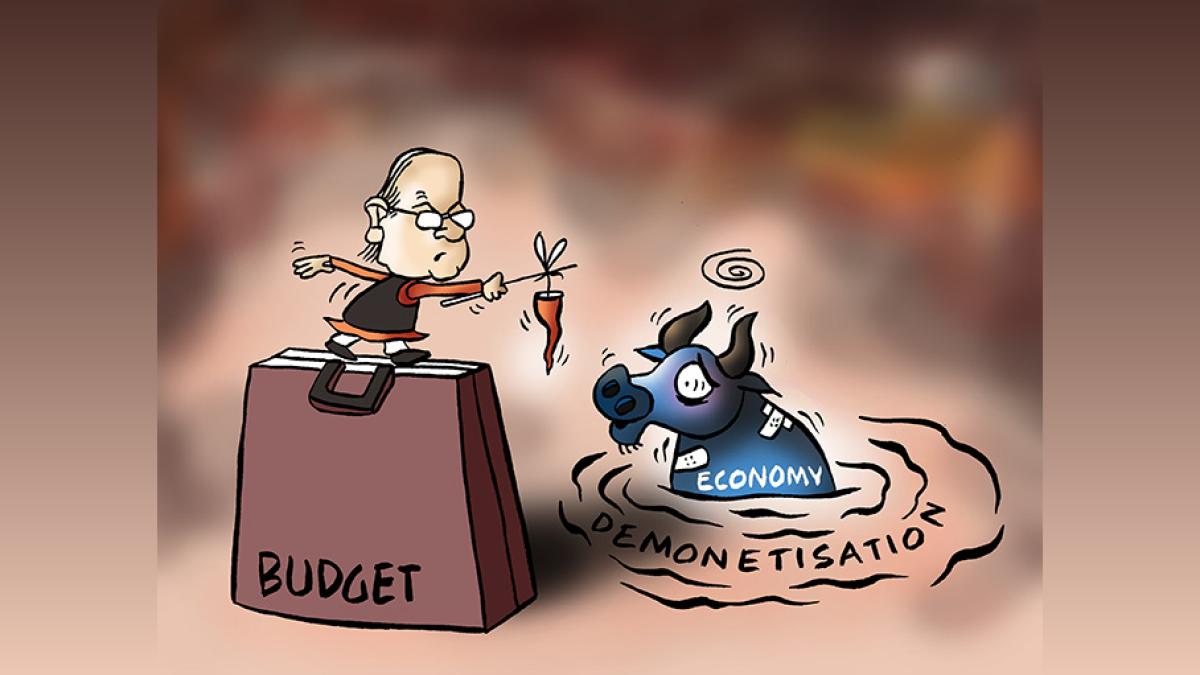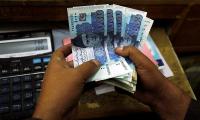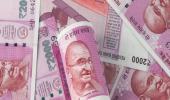Pakistan Passes Rs 18.8 Billion Budget for Fiscal 2024-25
Pakistan's National Assembly approves a Rs 18,877 billion budget for fiscal 2024-25 amid opposition protests, focusing on economic growth and tackling the fiscal deficit.

Islamabad, Jun 28 (PTI) Cash-strapped Pakistan's Parliament on Friday passed a Rs 18,877 billion budget for the fiscal year 2024-25, amidst protests from the Opposition which labelled it as an IMF-driven document that was harmful to the public.
The Finance Bill, 2024, detailing the expenditures and income of the government, was presented in the National Assembly on July 12 and lawmakers from the treasury and opposition spent several days discussing its various parts.
Minister for Finance Muhammad Aurangzeb moved a motion asking for the approval of the house, which was duly given with the support of the Pakistan Peoples Party led by former foreign minister Bilawal Zardari Bhutto.
According to the budget documents, the gross revenue receipts have been estimated at Rs 17,815 billion, including Rs 12,970 billion in tax revenues and Rs 4,845 billion in non-tax revenue.
The share of provinces in the federal receipts will be Rs 7,438 billion. The growth target had been set at 3.6 per cent during the next fiscal year.
Inflation is expected to be 12 per cent, budget deficit 5.9 per cent of GDP and primary surplus will be one per cent of the GDP.
Opposition leader in the National Assembly, Omar Ayub, along with Pakistan Tehreek-e-Insaf (PTI) Chairman Gohar Ali Khan and Sunni Ittehad Council leader Ali Muhammad, said relevant stakeholders were not taken on board during the formulation of the bill.
Omar Ayub said: The finance bill fails to address the critical economic challenges faced by the country and has been drafted without adequate consultation with key stakeholders.
Gohar Ali Khan said: This bill is not reflective of the people's aspirations or the country's economic realities.
Policymakers have set a challenging tax revenue target of Rs 13 trillion rupees for the fiscal year starting July 1, up about 40 per cent from the current year, in the national budget presented on July 12 that looked to strengthen the case for a new rescue deal with the International Monetary Fund.
Pakistan is in talks with the IMF for a loan of USD 6 billion to USD 8 billion to tide over its financial woes.
The development budget has been set at the historic level of Rs 1,500 billion.
Prime Minister Shehbaz Sharif also briefly spoke in the House, especially to address the concerns regarding Khyber-Pakhtunkhwa province, where jailed former prime minister Imran Khan-led Pakistan Tehreek-e-Insaf party won the election on February 8 for the third consecutive time.
He said the province has been paid Rs 590 billion extra and had been transferred to the province since 2010 to tackle militancy but it failed to even set up the structure of the counter-terrorism department.
Finance Minister Aurangzeb said the government gave tax exemption for education and health in difficult economic conditions.
Similarly, exemptions to agricultural inputs like fertilizers and pesticides as well as for researchers and teachers will continue.
Aurangzeb termed the budget 2024-25 as a growth budget and said it was based on a well-thought-out strategy to boost economic growth, adding that the budget aimed at narrowing the fiscal deficit by expanding the government's revenues and cutting unnecessary expenditures.
The Finance Bill, 2024, detailing the expenditures and income of the government, was presented in the National Assembly on July 12 and lawmakers from the treasury and opposition spent several days discussing its various parts.
Minister for Finance Muhammad Aurangzeb moved a motion asking for the approval of the house, which was duly given with the support of the Pakistan Peoples Party led by former foreign minister Bilawal Zardari Bhutto.
According to the budget documents, the gross revenue receipts have been estimated at Rs 17,815 billion, including Rs 12,970 billion in tax revenues and Rs 4,845 billion in non-tax revenue.
The share of provinces in the federal receipts will be Rs 7,438 billion. The growth target had been set at 3.6 per cent during the next fiscal year.
Inflation is expected to be 12 per cent, budget deficit 5.9 per cent of GDP and primary surplus will be one per cent of the GDP.
Opposition leader in the National Assembly, Omar Ayub, along with Pakistan Tehreek-e-Insaf (PTI) Chairman Gohar Ali Khan and Sunni Ittehad Council leader Ali Muhammad, said relevant stakeholders were not taken on board during the formulation of the bill.
Omar Ayub said: The finance bill fails to address the critical economic challenges faced by the country and has been drafted without adequate consultation with key stakeholders.
Gohar Ali Khan said: This bill is not reflective of the people's aspirations or the country's economic realities.
Policymakers have set a challenging tax revenue target of Rs 13 trillion rupees for the fiscal year starting July 1, up about 40 per cent from the current year, in the national budget presented on July 12 that looked to strengthen the case for a new rescue deal with the International Monetary Fund.
Pakistan is in talks with the IMF for a loan of USD 6 billion to USD 8 billion to tide over its financial woes.
The development budget has been set at the historic level of Rs 1,500 billion.
Prime Minister Shehbaz Sharif also briefly spoke in the House, especially to address the concerns regarding Khyber-Pakhtunkhwa province, where jailed former prime minister Imran Khan-led Pakistan Tehreek-e-Insaf party won the election on February 8 for the third consecutive time.
He said the province has been paid Rs 590 billion extra and had been transferred to the province since 2010 to tackle militancy but it failed to even set up the structure of the counter-terrorism department.
Finance Minister Aurangzeb said the government gave tax exemption for education and health in difficult economic conditions.
Similarly, exemptions to agricultural inputs like fertilizers and pesticides as well as for researchers and teachers will continue.
Aurangzeb termed the budget 2024-25 as a growth budget and said it was based on a well-thought-out strategy to boost economic growth, adding that the budget aimed at narrowing the fiscal deficit by expanding the government's revenues and cutting unnecessary expenditures.
You May Like To Read
TODAY'S MOST TRADED COMPANIES
- Company Name
- Price
- Volume
- Vodafone-Idea
- 11.36 ( -2.49)
- 94664837
- AvanceTechnologies
- 1.16 (+ 4.50)
- 34522155
- Sunshine-Capital
- 0.26 ( -3.70)
- 29015901
- Alstone-Textiles
- 0.27 ( -3.57)
- 28695959
- Mehai-Technology
- 1.65 ( -4.62)
- 28262795






